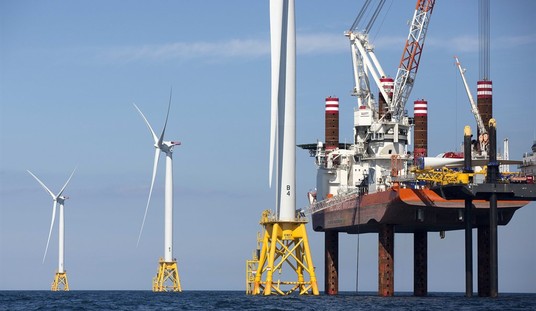The NY Times has been doing a series of articles on the pandemic and today they published one about the search for the origin of the virus. What the piece makes clear is that China has been obstructing all efforts to find the source of the virus, keeping the World Health Organization at arm’s length even as WHO leaders praised China’s response and transparency.
Nine months and more than 1.1 million deaths later, there is still no transparent, independent investigation into the source of the virus. Notoriously allergic to outside scrutiny, China has impeded the effort, while leaders of the World Health Organization, if privately frustrated, have largely ceded control, even as the Trump administration has fumed.
The big picture here is that we still don’t know where the virus originated and, as the Times points out, the idea that it originated at the Wuhan market is not very convincing:
The question of where Covid-19 began is especially intriguing because the initial theory, centered on illegal wildlife sales at the Wuhan market, is now in doubt.
There is powerful evidence that the new coronavirus passed naturally from an animal into humans. Scientists have found a virus in bats that is a close relative, and they suspect that it may have infected another animal species before it reached people.
But though they agree that many cases were linked to the market in Wuhan, many scientists no longer believe it is where the outbreak began.
The virus definitely spread at the market but China sent people in to close and clean the market a day before it sent in biologists to take samples. The result is that they found some traces of the virus at the market but couldn’t identify a source. China has never released the data it collected from animals at the market though Dr. Gao, from the Chinese equivalent of the CDC, has said those tests revealed nothing. It seems likely China won’t release the data because it shows a dead end and, implicitly, a failure on their part. In any case, the evidence that the virus started somewhere else is pretty strong:
In late January, Dr. Gao co-wrote one of the earliest epidemiological studies about the virus. The study highlights the market’s links to the outbreak. But a close look at the data reveals something significant: Four of the first five coronavirus patients had no clear links to the market.
They had apparently been infected elsewhere.
One of the reasons we don’t know where it started and spread is because WHO has consistently buckled under Chinese pressure. Dr. Tedros, who leads WHO, decided not to declare an emergency on Jan. 23 after lobbying from China:
What was not publicly known, though, was that the committee’s Jan. 23 decision followed intense lobbying, notably by China, according to diplomats and health officials. Committee members are international experts largely insulated from influence. But in Geneva, China’s ambassador made it clear that his country would view an emergency declaration as a vote of no confidence.
Dr. Tedros finally declared a health emergency on Jan. 30. What had the extra week of time bought WHO? Two weeks later a group of scientists were allowed to travel to China but they were explicitly not allowed to investigate the origin of the virus. In fact, China didn’t even want to let them into Wuhan at first but eventually allowed them to visit two hospitals there. After this trip, the Times reports it took 3 days of negotiating with China to write a report about what the researchers had seen. Every word of the report was scrutinized by China:
On the origins of the virus, the experts mostly shifted the onus to China, asking the government to prioritize a “rigorous investigation.” But they also assured people that numerous investigations were underway.
“It was an absolute whitewash,” said Lawrence O. Gostin, a professor of global health law at Georgetown University. “But the answer was, that was the best they could negotiate with Xi Jinping.”
Very little has changed since that first February trip to China. WHO sent two experts in July but they were not allowed to enter Wuhan and could only talk to people over the phone. China then told WHO that if it wanted to examine the origins of the virus it should start looking in Europe:
Chinese officials then said that the organization should start investigating in Europe, pointing to reports that the virus had been discovered in sewage systems there last year.
The World Health Organization has now negotiated a new agreement with China regarding the investigation into the origin of the virus. Guess who is completely in charge of that investigation:
An executive summary of the documents, obtained by The Times, shows that the health organization’s virus origin studies will unfold in two phases. One will look for the first patients by reviewing hospital records and interviewing people who were treated for the virus in December. The team will also investigate what wildlife was sold at the Wuhan market and follow the supply chain, according to the summary.
The W.H.O. has agreed this phase will be led by Chinese scientists, with outsiders reviewing their work remotely.
Naturally, the Times has nothing positive to say about the Trump administration, but it’s clear from reading the piece that Trump was essentially correct about WHO’s willingness under Dr. Tedros to praise China in nearly every circumstance, including when such praise was neither accurate nor warranted. What good is a World Health Organization if it constantly bows to Chinese pressure and can’t pursue one of the most fundamental questions about the pandemic, i.e. how did the virus originate?








Join the conversation as a VIP Member